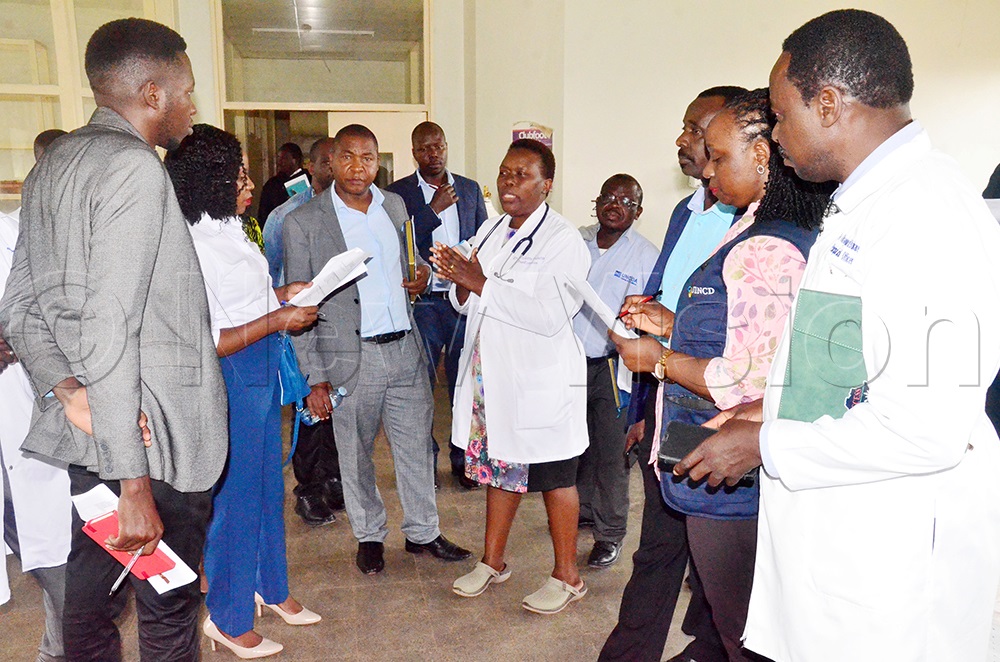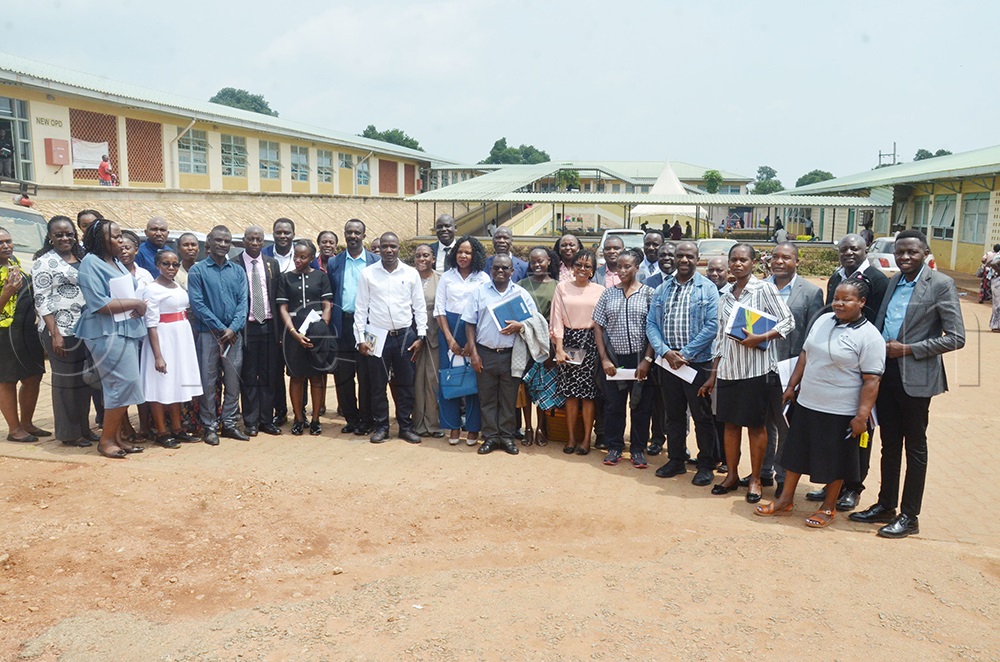Govt calls for newborn sickle cell screening
Currently, Nakaseke Hospital is treating and managing a total of 253 patients with sickle cell disease.
Dr Ivan Kimuli, together with Dr Susan Nakireka, who is the President Elect of NCD Alliance East Africa, checking in a sick child at Nakaseke hospital. (Credit: Agnes Kyotalengerire)
_______________
Uganda's health ministry has asked health workers at Nakaseke Hospital to screen newborn babies for sickle cell disease.
Dr Charles Oyoo Akia, the commissioner non-communicable diseases (NCDs) at the health ministry, said children who are found to have the sickle cell genre should be followed up and guided, especially at a time when they are ready to get married.
Fredah Nsereko, the national sickle cell programme officer at the health ministry, agreed and urged the health workers to co-operate.
“We ask of you to come up with an arrangement on how to go about screening. Get files and anyone who is on duty must record the babies screened, with priority given to those who are positive,” she said.
Sickle cell disease is an inherited condition. At the time of conception, each parent who is a carrier with AS genre passes on the genre to the unborn. The normal parent carries the AA and the sickle cell patient SS genre.
The national sickle cell trait prevalence stands at 13.3%. The sickle cell disease stands at 0.73%, according to the Uganda Sickle Surveillance Study (US3) of 2014. The east, north and central are the regions with a high prevalence of the sickle cell disease.
Currently, Nakaseke Hospital is treating and managing a total of 253 patients with sickle cell disease.
Dr Violet Nabatte of Nakaseke hospital addressing guests. (Credit: Agnes Kyotalengerire)

MOH officials, development partners, staff of Nakasekere hospital and experts in NCDs pose for a photo at Nakaseke hospital. (Credit: Agnes Kyotalengerire)
This was during a meeting when officials from the Ministry of Health, National Medical Stores, Uganda Initiative for Integrated Management of NCDs (UINCD) and implementing partners, civil society organisations, and NCD experts conducted a multi-disciplinary joint technical support supervision at Nakaseke general hospital on Frdiay, July 25, 2025, and a few lower health facilities to check on progress of the PEN-Plus and program.
Dr Oyoo said the tour is a deliberate effort by the Ministry and development partners to build capacity and provide specialised services at regional hospitals, with Nakaseke inclusive. Consequently, this will save patients the hassle of travelling to Mulago National Referral Hospital to seek treatment and care.
He urged health workers to be deliberate and focus on prevention of non-communicable disease, as the best strategy to curb related complications and death.
“Preventing non-communicable diseases (NDCs) is a collective responsibility,” he said
The Deputy Director of the Uganda Initiative for Integrated Management of NCDs (UINCD) and National Team Lead for PEN-Plus, Dr Ann Rose Akiteng, said the support supervision exercise under the PEN-Plus program is aimed at reviewing the status of key activities, including functionality and operations of Non Communicable Disease PEN-Plus and PEN clinics, availability of medicines and supplies.
In addition to documentation of patients’ data, functionality of laboratory and other (diagnostic) equipment, patient follow-up systems and practices, community engagement and awareness activities, social support initiatives, health education efforts, ongoing integration of NCD with other services, as well as the establishment and functionality of patient support groups among others, Dr Akiteng said.
PEN-Plus is a World Health Organisation (WHO)-endorsed strategy to improve access to care for severe, chronic NCDs in low- and middle-income countries, specifically targeting conditions like type 1 diabetes, rheumatic heart disease, congenital heart diseases and sickle cell disease.
It focuses on providing integrated outpatient services at first-level hospitals, complementing the WHO's PEN program, which focuses on common NCDs at the primary care level.
In Uganda, PEN-Plus is implemented by the Uganda Initiative for Integrated Management of NCDs (UINCD) in collaboration with the Health Ministry and funded by NCDI Poverty Network.
PEN-Plus program offers an integrated package of care for sickle cell disease, type 1 diabetes, rheumatic heart disease, congenital heart diseases, and asthma at general hospitals.